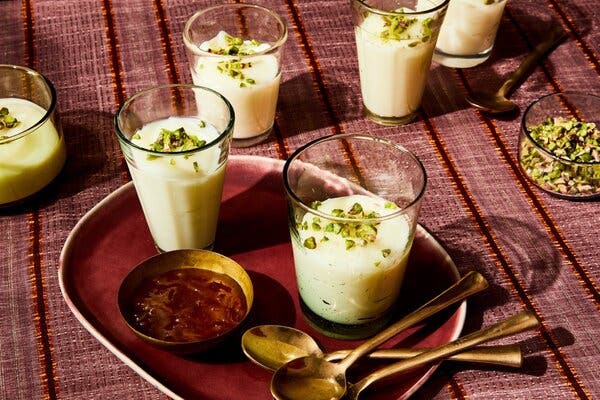By Phyllis Chesler
Propaganda works in many ways. Bold headlines and biased reportage, repeated daily, even hourly, for years on end, is one way. But there is also, simultaneously, a more insidious form of propaganda, namely, politicizing articles on radically different subjects. Palestine and gardening. Palestine and cuisine. For example, #Ligaya Mishan is at it again, claiming a false “Palestinian” origin and identity for Mouhalabieh, a creamy, white pudding, whose name and essential spice, mastiha, comes from Greece. (She even says so). Wait. Have the Palestinans stole this recipe from the Greeks? She makes no such accusation). This is Mishan’s third politicized food column in the New York Times. In the past, she has claimed that there is a uniquely “Falastinian” cusine; that Israelis have stolen all of it from them; and that lentil dishes are a uniquely “Palestinian” dish. Even worse: She sprinkles anti-Israel propaganda (the alleged “occupation,” the theft of olive groves, the exile of both people and memory) into her texts.
And, by the way: I’ve had similarly creamy milk puddings in Kabul, Teheran, and Jerusalem. Did the Afghans and the Iranians also steal the recipe?

- Like
- Digg
- Tumblr
- VKontakte
- Buffer
- Love This
- Odnoklassniki
- Meneame
- Blogger
- Amazon
- Yahoo Mail
- Gmail
- AOL
- Newsvine
- HackerNews
- Evernote
- MySpace
- Mail.ru
- Viadeo
- Line
- Comments
- SMS
- Viber
- Telegram
- Subscribe
- Facebook Messenger
- Kakao
- LiveJournal
- Yammer
- Edgar
- Fintel
- Mix
- Instapaper
- Copy Link







One Response
When admiration and
appreciation are cause for utilisation but interpreted as misappropriation,
education in values differentiation will
yield cogitation rehabilitation.
Food may be good or bad, depending on how much you had.